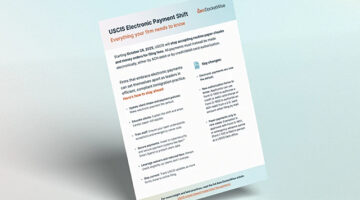 Last week, Bloomberg reported on Brian Stolarz, a former senior associate with K&L Gates whose heroic pro-bono efforts helped a former death-row inmate win his freedom — but couldn’t win Stolarz partnership at his firm. Predictably, the firm’s partnership decision came down to hours: K&L Gates had an annual 2000-hour billable requirement, Stolarz admitted that he “was probably billing 1,400, and [around 500 pro bono]. As a result, Stolarz had to settle for an of-counsel position — though he’s since left K&L Gates and is now a partner at LeClair Ryan.
Last week, Bloomberg reported on Brian Stolarz, a former senior associate with K&L Gates whose heroic pro-bono efforts helped a former death-row inmate win his freedom — but couldn’t win Stolarz partnership at his firm. Predictably, the firm’s partnership decision came down to hours: K&L Gates had an annual 2000-hour billable requirement, Stolarz admitted that he “was probably billing 1,400, and [around 500 pro bono]. As a result, Stolarz had to settle for an of-counsel position — though he’s since left K&L Gates and is now a partner at LeClair Ryan.
The Bloomberg piece valiantly tries to make the counter-case that large global law firms should count all pro bono work towards associates’ billable requirements. Yet even if more firms adopted a parity-for-pro-bono-hours policy, it’s unlikely that this change would make a difference since most of the nameless attorneys interviewed for the article said that irrespective of their firm’s official pro bono policies, ultimately, their careers are judged by hours billed.
And that makes sense. After all, where else on the planet can employees who are hired and paid to perform a particular job devote a quarter of their work-time to charity and volunteer endeavors and still expect the same salary and advancement opportunities? That Uber driver who volunteers two mornings a week shuttling old folks to doctors’ appointments doesn’t even get paid for those hours. Ditto the grocery store worker who runs around town collecting canned goods for the local food bank.

USCIS shift to electronic payments: What immigration firms need to know
As of October 2025, U.S. Citizenship and Immigration Services requires electronic payments for filing fees. Learn key updates, exemptions, and how firms can prepare.
Likewise, the universal rule that hours worked = income and benefits received applies in solo and small law land too. Solo lawyers who choose to spend 500 hours a week of their time on pro bono matters would soon find themselves not merely bumped down from the prospect of a high-six figure partnership salary to low six-figure of-counsel position, but flat out bankrupt. And large firms aren’t immune either: granted, a large firm that writes off 500-hours of billable time won’t go out of business, but multiply those 500 hours 500 times over, and you’re looking at a serious revenue loss.
Moreover, if the purpose of pro bono work is to expand access to justice rather than merely serve as a law firm recruitment tool, arguably, it’s efficient for large firms to fund legal aid organizations or pay solos to do pro bono work. Do the math: if Stolarz had spent 500 hours on billable work instead of pro bono, he would have conservatively generated $157,000 in revenues for the firm (assuming $450/hr rate x 500 hrs, applying a 70% realization rate). Stolarz’s foregone revenue funded one capital case, which is undoubtedly important. But those dollars would have gone much farther if donated to a non-profit focused on capital cases. Heck, $157,000 could pay for two solo lawyers to each take on a year’s worth of free and low-bono divorce, domestic violence, immigration and landlord-tenant cases — matters where representation is desperately needed.
Some large firms may be heading in that direction — effectively “outsourcing” their pro bono obligations by supporting other attorneys or organizations to provide legal services. For example, the Bloomberg mentions an initiative by Jones Day to set up a network to help military veterans obtain legal services. And for years, Skadden has operated fellowship program that pays the salary for 30 attorneys to work at legal aid organizations.
Decades ago, I published a law review article questioning whether Biglaw pro bono programs are the most effective way to expand access to justice. Today, I’m more convinced than ever that these programs don’t work since despite the thousands of hours of pro bono time logged by Biglaw firms each year, the majority of low income people are consistently unable to afford legal services. Instead of forcing firms to forego revenue to benefit a handful of associates who take on pro bono work, why not ask them to spread the wealth to support solo and non-profit law firms who can do pro bono and low-bono work more efficiently and affordably?

First Draft To Final: How To Use AI To Accelerate Legal Drafting Workflows
Discover how LexisNexis Protégé™ transforms legal drafting into a strategic collaboration between lawyers and AI—enhancing quality, speed, and defensibility.
 Carolyn Elefant has been blogging about solo and small firm practice at MyShingle.comsince 2002 and operated her firm, the Law Offices of Carolyn Elefant PLLC, even longer than that. She’s also authored a bunch of books on topics like starting a law practice, social media, and 21st century lawyer representation agreements (affiliate links). If you’re really that interested in learning more about Carolyn, just Google her. The Internet never lies, right? You can contact Carolyn by email at [email protected]or follow her on Twitter at @carolynelefant.
Carolyn Elefant has been blogging about solo and small firm practice at MyShingle.comsince 2002 and operated her firm, the Law Offices of Carolyn Elefant PLLC, even longer than that. She’s also authored a bunch of books on topics like starting a law practice, social media, and 21st century lawyer representation agreements (affiliate links). If you’re really that interested in learning more about Carolyn, just Google her. The Internet never lies, right? You can contact Carolyn by email at [email protected]or follow her on Twitter at @carolynelefant.